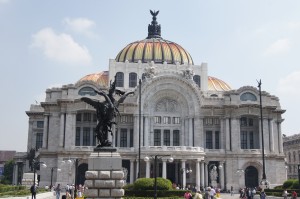- kristalalley@gmail.com
 “Without a doubt, more than ever, the world needs today the sum of talents, the sum of ideas to explore alternatives, to find innovative solutions that will enable the international economy to deal with the challenges it faces, to recover its balance and to get back onto the path of growth.” With these words, Mexican President Calderón launched Mexico’s presidency of the G-20. As the first Latin American country to host such a prestigious forum, it is being hailed by the government as a sign of global recognition of its sound economy and confidence in its ability to manage its shaky security situation. Self-congratulating rhetoric aside, there is a certain irony when, in his opening speech, a Mexican president admonishes Europe and the United States for not assuming their responsibilities and making “clear and firm decisions in order to balance their public finances.”
Following what Mexico believed was an overly broad French agenda and a presidency that was too involved in its own crisis to consider all points of view, they are determined to ‘get back to basics’. In this regard, Mexico has identified 5 priorities:
“Without a doubt, more than ever, the world needs today the sum of talents, the sum of ideas to explore alternatives, to find innovative solutions that will enable the international economy to deal with the challenges it faces, to recover its balance and to get back onto the path of growth.” With these words, Mexican President Calderón launched Mexico’s presidency of the G-20. As the first Latin American country to host such a prestigious forum, it is being hailed by the government as a sign of global recognition of its sound economy and confidence in its ability to manage its shaky security situation. Self-congratulating rhetoric aside, there is a certain irony when, in his opening speech, a Mexican president admonishes Europe and the United States for not assuming their responsibilities and making “clear and firm decisions in order to balance their public finances.”
Following what Mexico believed was an overly broad French agenda and a presidency that was too involved in its own crisis to consider all points of view, they are determined to ‘get back to basics’. In this regard, Mexico has identified 5 priorities: